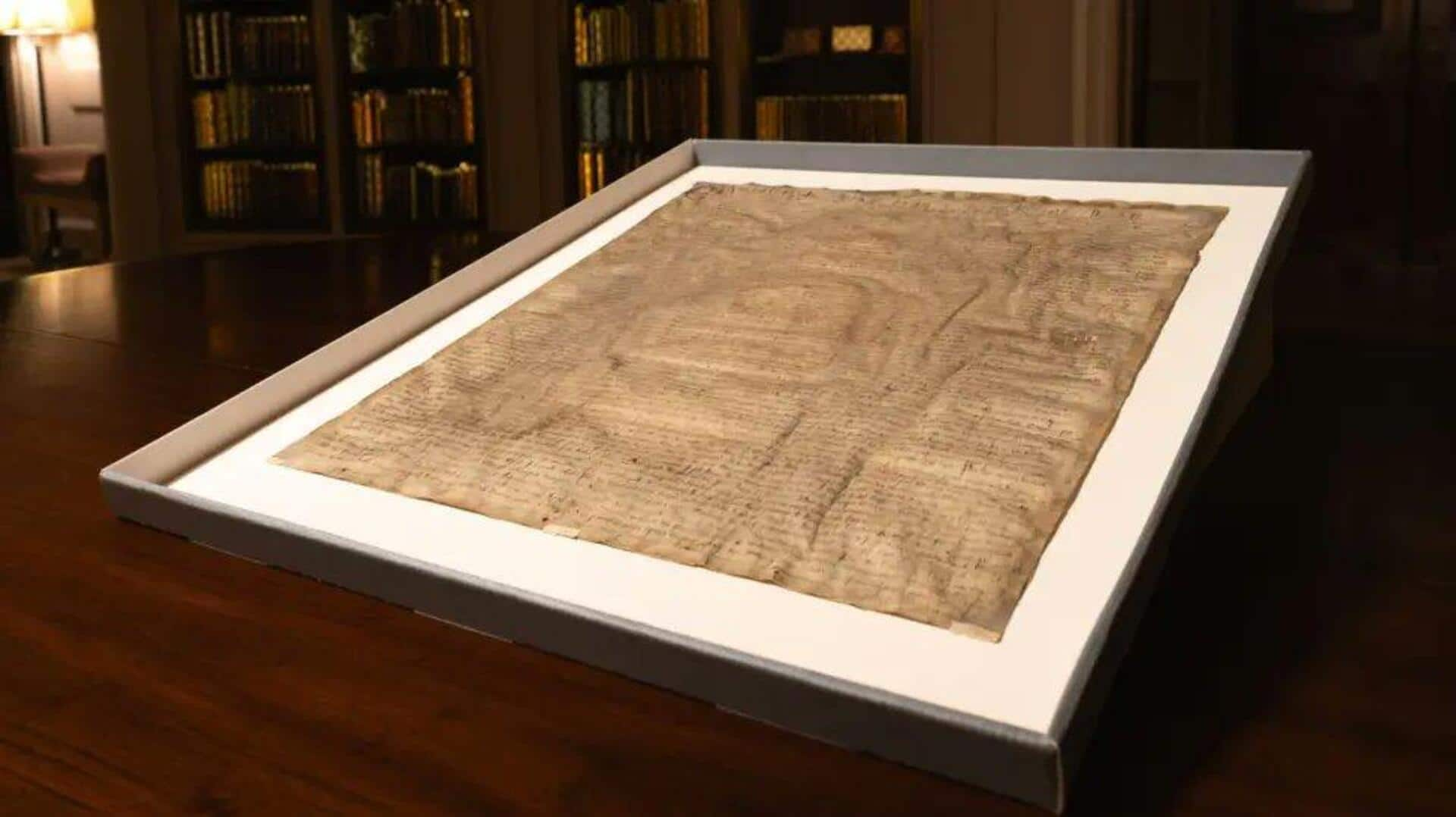
Harvard's 'unofficial' Magna Carta copy is actually an original: Experts
What's the story
A document thought to be a non-official version of the Magna Carta for almost 80 years has been confirmed as an original from 1300. It is now one of the seven surviving documents issued by King Edward I. The discovery was made by David Carpenter, professor of medieval history at King's College London, who found it in Harvard Law School library's online collection.
Authentication process
Harvard's document authenticated through rigorous testing
To authenticate the copy, Carpenter and Nicholas Vincent of the University of East Anglia conducted a series of tests on the document, HLS MS 172. "Using spectral imaging and ultraviolet light," Carpenter explained, "I worked through it word by word, and it matched perfectly to the other six." "One extraordinary little detail....is the initial E at the start of Edwardus," he said, adding another distinctive feature was an unusual capital 'D' in Edwardus's name, which matched one on another original.
Historical significance
Magna Carta: A cornerstone of law and democracy
The Magna Carta, initially issued by King John in 1215, was the first document to proclaim that the king and his government weren't above the law. Carpenter called HLS MS 172 "one of the world's most valuable documents." Explaining its importance, he said, "It asserts a fundamental principle that the ruler is subject to the law... It's the foundation stone of western tradition of law and democracy."
Purchase details
Harvard's acquisition of the document
In 1946, Harvard had bought what they thought was a copy for $27.50, according to the library's accession register. A month before that, an RAF veteran had sold it to London book dealers Sweet & Maxwell for £42. "It's easy to understand why it was mis-catalogued when it was sold... It's worth many times that," Vincent said on the mis-cataloging.
Provenance
Document's journey through history
Carpenter and Vincent believe the document belonged to the former parliamentary borough of Appleby in Cumbria. From 1300, it went through an 18th-century aristocratic family (the Lowthers), who presented it to Thomas Clarkson, a prominent slavery abolitionist, Vincent said. From Clarkson's estate, it went to First World War flying ace Forster Maynard, who commanded an airbase on Malta at the start of WW II.